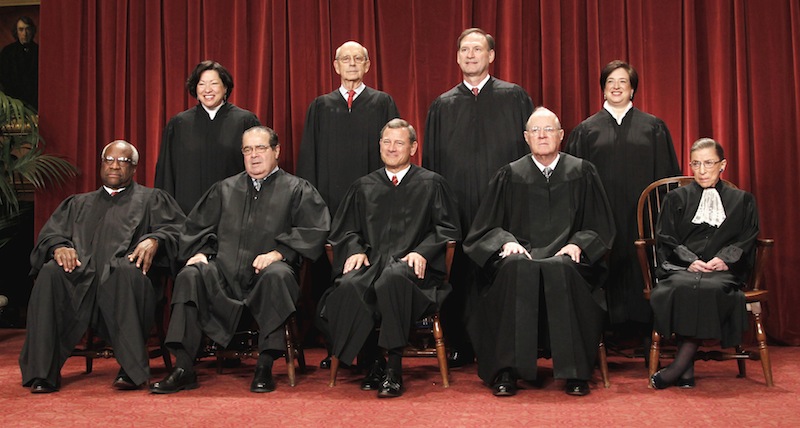The Supreme Court is set to hear oral arguments Tuesday in an important case about the validity of an Ohio state law banning false statements about political candidates in campaigns.
The challenge was brought by the Susan B. Anthony List, an anti-abortion group, which wants to invalidate the Ohio law. In 2010, it sought to put up a billboard claiming Rep. Steve Driehaus (D) supported taxpayer funding of abortion. The advertising company, under pressure from Driehaus who appealed to the Ohio Elections Commission to block the billboard under the statute, refused to put it up. (Driehaus lost reelection anyway.)
A lower court found that the SBA List lacked standing to sue. The 6th Circuit and 8th Circuit courts of appeals have issued split rulings on whether state laws banning false statements are permissible under the First Amendment.
There’s a real chance the Supreme Court won’t weigh in on the merits of this case. If the justices conclude that the SBA List has standing, they’re expected to send it back to the lower courts to consider the merits first.
“I don’t expect the Court to reach the merits,” said election law expert Rick Hasen, a professor at UC Irvine. “I expect them to find that Susan B. Anthony has faced enough harm that it is entitled to have its claim adjudicated first in the lower courts.”
Although the First Amendment says only that “Congress shall make no law … abridging the freedom of speech,” the Supreme Court extended free-speech protections to states in the 1925 case Gitlow v. New York.
If the justices require the case to be heard on the merits, it could open the door for serious challenges to similar state laws against campaign lies in Arkansas, Louisiana and North Carolina.










